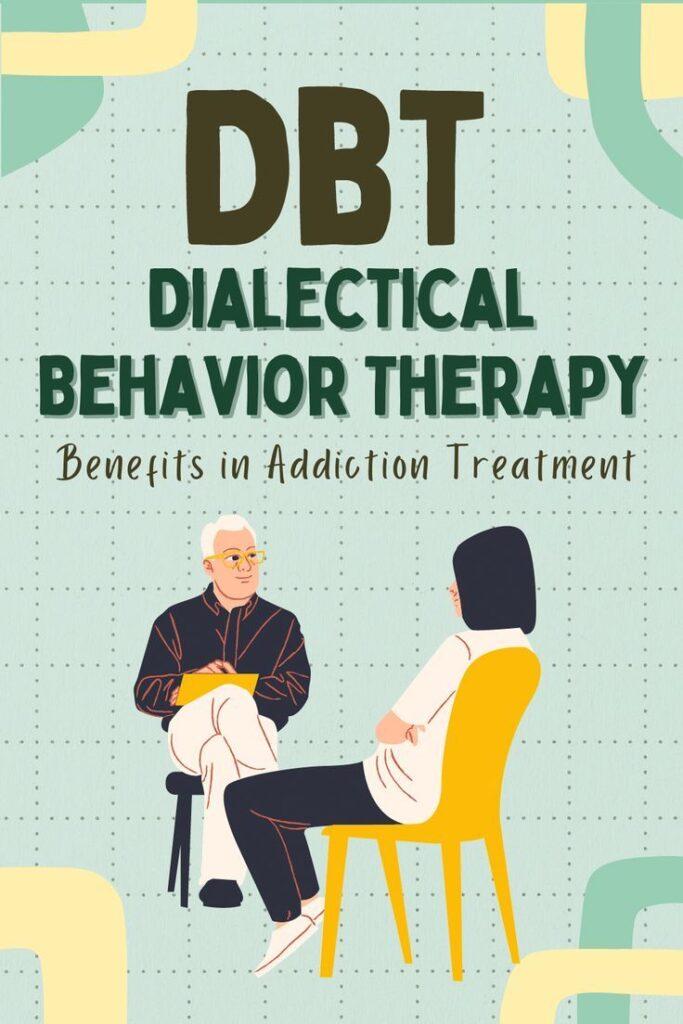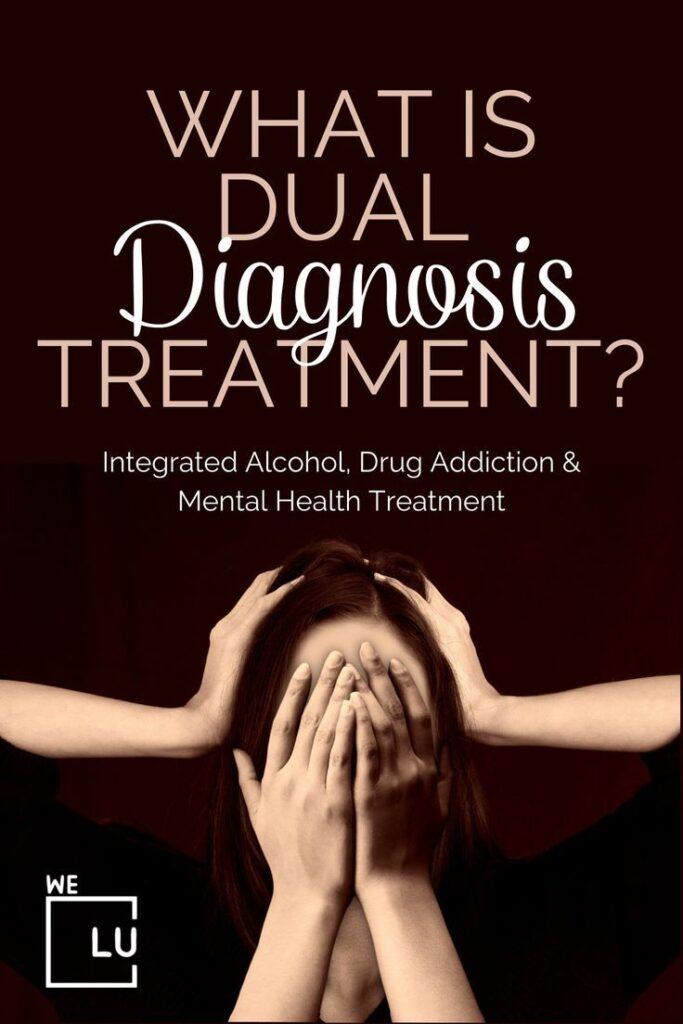Understanding Mental Health Treatments
Millions of Americans suffer from various mental illnesses and problems. These include social anxiety, obsessive-compulsive disorder, drug addiction, and personality disorders. By seeking treatment, individuals can better understand their condition, develop coping strategies, and learn valuable skills to manage their mental health effectively.
While some psychiatric conditions, such as depression, may not have a definitive cure, they are often manageable with appropriate treatment and support. The goal of treatment for these illnesses is not necessarily to eliminate them but to alleviate symptoms, improve functioning, and enhance the individual’s overall well-being.
Mental health treatment provides the necessary support and interventions to address psychiatric condition concerns and improve quality of life. Therapy also helps to lower the risk of complications and associated physical health problems. Ultimately, treatments for mental health promote personal growth, resilience, and long-term recovery.
How to Get a Mental Health Diagnosis?
Diagnosing mental health conditions should be done by trained and licensed professionals, such as psychiatrists, psychologists, or clinical social workers. These professionals have the expertise to conduct a comprehensive evaluation and diagnose accurately. Diagnosis is a complex process that requires careful consideration of multiple factors, and seeking professional help is crucial for an appropriate assessment and treatment plan.
The first step is to conduct an initial assessment of the individual’s psychiatric conditions. This typically involves an interview with a mental health professional, where they gather information about the individual’s symptoms, medical history, and any relevant contextual factors. The professional may ask questions to understand the symptoms’ duration, severity, and impact on the individual’s daily life.
The mental health professional compares the individual’s symptoms and experiences with the diagnostic criteria outlined in the Diagnostic and Statistical Manual of Mental Disorders (DSM-5). The DSM-5 provides standardized criteria for diagnosing various mental health conditions. The professional determines whether the individual’s symptoms meet the criteria for a specific disorder or if there are indications of multiple conditions.
Depending on the situation, additional assessment tools may be used to gather more information. These can include self-report questionnaires, psychological tests, or rating scales that assess specific symptoms or aspects of mental health. These tools help to gather objective data and provide additional insights into the individual’s mental health condition.
The mental health professional engages in a differential diagnosis process, considering and ruling out other potential causes of the symptoms. They take into account various factors such as medical conditions, substance use, and other psychiatric disorders. This step helps to ensure an accurate diagnosis by eliminating alternative explanations for the individual’s symptoms.
To determine a diagnosis and check for related conditions, you may have:
- A physical exam. Your doctor will try to rule out physical issues that could cause your signs and symptoms.
- Lab tests. These may include, for example, a check of your thyroid function or a screening for drugs and alcohol.
- A psychological evaluation. A doctor or mental health professional discusses your signs and symptoms, thoughts, feelings, and behavior patterns. You may be asked to complete a questionnaire to help answer these questions.
Types of Mental Health Treatment Programs
Various mental health treatment programs are available to address different levels of psychiatric conditions and needs. The following are the top mental health treatment programs:
Inpatient or Residential Mental Health Treatment
Mental health residential treatment centers provide intensive care in a structured and supervised environment. They are suitable for individuals with severe or acute psychiatric conditions that require 24-hour support and monitoring. In these inpatient mental health treatment centers, individuals reside at a treatment facility and receive comprehensive services, including the following:
- Individual therapy.
- Group therapy.
- Medication management.
- Medical support.
- Specialized therapeutic activities.
The individual’s needs and progress determine the length of stay in inpatient treatment for mental health.
Mental Health Outpatient Programs
What is outpatient mental health treatment? Outpatient mental health programs are designed for individuals who can live at home while receiving treatment. They involve regular appointments with mental health professionals, such as psychiatrists, psychologists, or therapists. Outpatient treatment may include the following:
- Individual therapy.
- Group therapy.
- Medication management.
- Psychoeducation.
- And other evidence-based interventions.
This option allows individuals to maintain their daily routines and responsibilities while receiving support and treatment.
PHP Program Mental Health Treatment
Partial hospitalization programs offer higher care than outpatient treatment, allowing individuals to return home in the evenings. These programs typically involve full-day treatment, with individuals attending therapy sessions and participating in structured activities during the day. PHPs provide comprehensive therapeutic services, including individual and group therapy, medication management, and specialized treatment modalities. They are suitable for individuals who require more intensive treatment but do not require 24-hour supervision.
Intensive Outpatient Program Mental Health
Intensive outpatient programs provide a structured treatment approach while allowing individuals to live at home. IOPs typically involve multiple weekly sessions, ranging from a few hours to half a day. These programs offer a combination of the following:
- Individual and group therapy.
- Psychoeducation.
- Relapse prevention.
- Skill-building activities.
IOPs are designed for individuals who require a higher level of care and support than traditional outpatient treatment but do not need full-time residential care.

Skip To:
Learn More:
- Psychiatric Disorder Treatment
- Co-Occurring Disorders Treatment
- Inpatient Depression Treatment
- Residential Treatment for Depression
- Severe Depression Treatment
- Top 5 Tips on How to Manage Anxiety & Strategies To Cope Without Medications
- Dialectical Behavior Therapy vs Cognitive Behavioral Therapy
- 101 Inspirational Recovery Quotes for Mental Health, Drug & Alcohol Addiction. Best Ever Daily Recovery Quotes.
- Substance Use and Mental Health Awareness Events Calendar
- Informational Mental Health Videos and Addiction Videos
Support Groups and Community Programs
Support groups, such as those facilitated by mental health organizations or community centers, provide a supportive environment for individuals with similar psychiatric conditions and challenges to come together, share experiences, and offer mutual support. These programs can complement other forms of treatment and help individuals build a supportive network. Furthermore, community-based programs and resources, such as vocational rehabilitation, peer support, and case management services, can assist individuals in managing their psychiatric conditions and accessing necessary resources.
The appropriate mental health treatment program type depends on the individual’s specific needs, severity of symptoms, and treatment goals. Mental health professionals can assess and recommend the most suitable treatment for each individual’s unique circumstances.
Get Help. Get Better. Get Your Life Back.
Searching for Accredited Drug and Alcohol Rehab Centers Near You?
Even if you have failed previously and relapsed, or are in the middle of a difficult crisis, we stand ready to support you. Our trusted behavioral health specialists will not give up on you. When you feel ready or just want someone to speak to about therapy alternatives to change your life call us. Even if we cannot assist you, we will lead you to wherever you can get support. There is no obligation. Call our hotline today.
(844) 597-1011Medications for Mental Health Treatment
Medication treatment is often combined with other forms of therapy, such as psychotherapy or counseling, to provide comprehensive care for psychiatric conditions. Regular monitoring and follow-up appointments are typically required to evaluate the medication’s effectiveness and potential side effects and make necessary adjustments to the treatment plan.
Medications and therapies can play a crucial role in treating psychiatric conditions. Here are some common classes of medications used in mental health treatment:
- Antidepressants: Antidepressant medications are primarily used to treat depression and certain anxiety disorders. They act by balancing chemicals in the brain called neurotransmitters, specifically serotonin, norepinephrine, and dopamine. Different types of antidepressants include:
- Selective serotonin reuptake inhibitors (SSRIs).
- Serotonin-norepinephrine reuptake inhibitors (SNRIs).
- Tricyclic antidepressants (TCAs).
- Monoamine oxidase inhibitors (MAOIs).
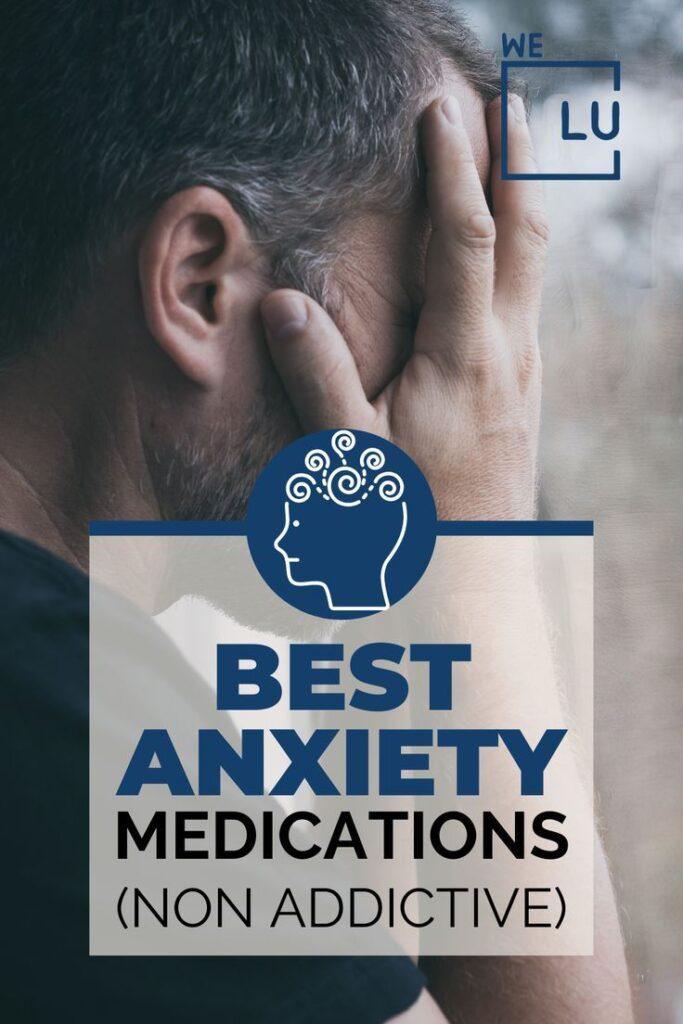
- Antianxiety Medications: Antianxiety medications, also known as anxiolytics, are prescribed to manage symptoms of anxiety disorders, such as (GAD) generalized anxiety disorder, panic disorder, and (SAD) social anxiety disorder. Commonly prescribed antianxiety medications include benzodiazepines like diazepam and lorazepam and certain antidepressants, like SSRIs and SNRIs.
- Mood Stabilizers: Mood stabilizers are primarily used to manage symptoms of bipolar disorder, a condition characterized by episodes of mania and depression. These medications help stabilize mood and prevent extreme mood swings. Examples of mood stabilizers include valproic acid, lithium, and certain anticonvulsant drugs.
- Antipsychotics: Antipsychotic medications treat conditions such as schizophrenia, bipolar disorder, and certain forms of depression. They work by modulating the effects of neurotransmitters in the brain, particularly dopamine. Antipsychotics can be classified into typical antipsychotics (first-generation) and atypical antipsychotics (second-generation).
- Stimulants: Stimulant medications, such as methylphenidate and amphetamines, are commonly prescribed for (ADHD) attention-deficit/hyperactivity disorder. They help improve focus, attention, and impulse control by increasing neurotransmitters like norepinephrine and dopamine levels in the brain.
It is crucial to consult and follow the guidance of mental health professionals, such as psychiatrists or psychiatric nurse practitioners, when it comes to medications for psychiatric conditions. Mental health professionals are familiar with various medications for mental health conditions. They can evaluate your symptoms, individual needs, and potential interactions with other drugs or health conditions to select the most suitable remedy.
Mental Health Treatment Plan Examples & Fact Sheet
Here’s an example of a psychiatric condition treatment plan for an individual dealing with anxiety:
Goals
- Lower the frequency and intensity of anxiety signs and symptoms.
- Improve overall quality of life and daily functioning.
- Enhance coping skills and resilience.
- Develop a support system for ongoing mental well-being.
Assessment and Diagnosis
- Conduct a comprehensive assessment of the individual’s symptoms, history, and current challenges.
- Confirm the diagnosis of anxiety disorder (e.g., generalized anxiety disorder, social anxiety disorder) based on the DSM-5 criteria.
Treatment Interventions
- Psychotherapy:
- Educate the individual about anxiety, its causes, and its impact on thoughts, emotions, and behaviors.
- Provide information about evidence-based treatments and available resources.
- Explain the role of lifestyle factors (e.g., sleep, exercise, nutrition) in managing anxiety.
- Cognitive Behavioral Therapy (CBT):
- Engage in individual therapy sessions focused on identifying and challenging negative thoughts and beliefs contributing to anxiety.
- Teach relaxation strategies, such as deep breathing and progressive muscle relaxation.
- Practice exposure therapy to gradually confront feared situations or triggers.
- Develop coping strategies to manage anxious thoughts and physical sensations.
- Medication:
- Consult a psychiatrist to evaluate the potential need for medication, such as selective serotonin reuptake inhibitors (SSRIs) or benzodiazepines, to reduce anxiety symptoms.
- Monitor medication efficacy and side effects, adjusting dosage as necessary.
Mental health professionals formulate treatment by utilizing a comprehensive and individualized approach. They gather information through assessments, interviews, and observations to understand the client’s unique challenges, symptoms, strengths, and goals.
Based on this evaluation, they apply their clinical expertise and knowledge of evidence-based practices to develop a treatment plan. This plan typically includes specific interventions, such as therapy modalities (e.g., CBT, psychodynamic therapy), medication options, lifestyle modifications, and social support recommendations.
Throughout the treatment process, medical professionals continuously assess the client’s progress, adjust interventions as needed, and collaborate with the client to ensure their preferences and needs are considered. The ultimate goal is to promote the client’s well-being, alleviate symptoms, enhance coping skills, and improve their overall quality of life.
- Lifestyle Modifications:
- Encourage regular exercise, as physical activity can reduce anxiety and improve overall well-being.
- Promote healthy sleep habits to ensure adequate rest and recovery.
- Discuss the significance of a healthy and balanced diet and avoiding substances that may exacerbate anxiety (e.g., caffeine, alcohol).
- Social Support and Therapy Groups:
- Explore joining support groups or therapy groups specific to anxiety disorders.
- Encourage the individual to share experiences, gain insights, and learn coping strategies from others facing similar challenges.
- Regular Review and Adjustments:
- Conduct periodic assessments to monitor progress and modify the treatment plan as needed.
- Collaborate with the individual to address any barriers or setbacks during treatment.
Additional Resources
- Provide information about helplines, crisis support services, and online treatment resources.
- Recommend self-help books, mobile applications, or online courses related to anxiety management.
Remember that this is just a mental health treatment plan template, and treatment plans should be tailored to the individual’s specific needs and preferences. To ensure a personalized and collaborative approach, involving the person receiving treatment in the planning process is essential.
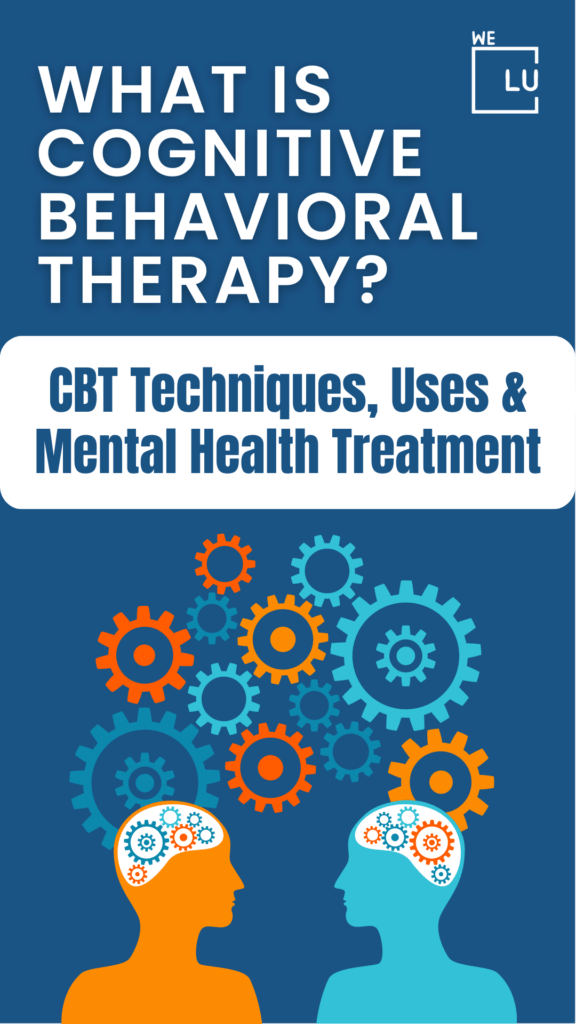
My Mental Health: Do I Need Help? Fact Sheet by the National Institute of Mental Health (NIMH)
Download the below pdf provided by NIMH. This file has been made publicly available for download to help mental health counseling programs and awareness.

Get Your Life Back
Find Hope & Recovery. Get Safe Comfortable Detox, Addiction Rehab & Dual Diagnosis High-Quality Care.
Hotline(844) 597-1011Mental Health Statistics
Access to psychiatric care can be limited due to various barriers, including stigma, financial constraints, and lack of available services. This can result in delayed or insufficient treatment for individuals in need.
20%
About 20% of US citizens have used mental health services, including psychotherapy, within a year.
Source: NCBI
1 in 4
Roughly 1 in 4 people worldwide experience mental health issues at some point.
Source: WHO
50%
The treatment gap for mental health remains significant. WHO estimates suggest that around 50% of people with mental disorders do not receive appropriate treatment.
Source: WHO
Types of Mental Health Therapy
There are various types of therapy for mental health, each with its focus and techniques. Here are some commonly practiced types of treatment:
- Cognitive Behavioral Therapy: CBT identifies and modifies negative thought patterns and behaviors contributing to psychiatric conditions.
- Psychodynamic Therapy: Explores how unconscious thoughts and early life experiences shape current behaviors and relationships to gain insight and resolve inner conflicts.
- Humanistic Therapy: Emphasizes personal growth, self-acceptance, and the individual’s capacity for self-determination. Person-Centered therapy is a well-known approach in this category.
- Dialectical Behavior Therapy: DBT Originally developed to treat borderline personality disorder, DBT combines elements of CBT with mindfulness techniques to improve emotional regulation and interpersonal skills.
- Acceptance and Commitment Therapy (ACT): Motivates individuals to accept their thoughts and emotions while committing to behaviors aligned with their values, aiming to enhance psychological flexibility.
- Family Therapy: Involves the entire family in treatment, focusing on improving communication, resolving conflicts, and strengthening relationships.
- Group Therapy: Attended by a few people with similar concerns, guided by a therapist. It provides support, interpersonal learning, and a sense of belonging. It could be a part of an outpatient therapy mental health program or in mental health treatment inpatient program.
- EMDR or Eye Movement Desensitization and Reprocessing: Primarily used to treat trauma-related conditions, EMDR combines elements of exposure therapy with rapid eye movements or other forms of bilateral stimulation.
- Art Therapy for Mental Health: Utilizes creative processes, such as drawing, painting, or sculpting, to promote self-expression, emotional healing, and self-discovery.
- Mindfulness-Based Therapies or Holistic Mental Health Treatment: Incorporate mindfulness meditation and awareness techniques to cultivate present-moment attention and reduce distress.
These types of therapy can overlap, and therapists often integrate multiple approaches based on the individual’s needs and goals. Furthermore, newer treatments and techniques continue to emerge as the mental health field evolves.
Introducing Occupational Therapy Mental Health Program
Mental health occupational therapy focuses on helping individuals with psychiatric conditions achieve optimal functioning and well-being daily. An occupational therapy program typically includes the following components:
- Assessment: Occupational therapists conduct comprehensive assessments to understand the individual’s strengths, challenges, and goals. This may involve interviews, observations, and standardized assessments to gather information about the person’s cognitive, emotional, and physical abilities.
- Treatment Planning: Based on the assessment, the occupational therapist collaborates with the individual to develop a personalized treatment plan. The plan outlines specific goals and interventions to address the person’s needs and support their well-being.
- Skill Building and Coping Strategies: Occupational therapists assist individuals in developing and enhancing essential life skills and coping strategies. This may involve teaching stress management techniques, problem-solving skills, effective communication, time management, and self-care activities.
- Activity and Routine Modification: Occupational therapists help individuals identify meaningful activities and incorporate them into daily routines. They may recommend modifications to make activities more accessible, enjoyable, or purposeful, promoting engagement and a sense of accomplishment.
- Environmental Modification: Therapists assess and modify the environment to support the individual’s health. This may include creating sensory-friendly spaces, organizing work or living areas, and providing recommendations for adaptive equipment or assistive technology.
- Social Skills Development: Occupational therapists facilitate the development of social skills and support individuals in building meaningful relationships and social connections. This may involve social skills training, group therapy, and community integration activities.
- Vocational Support: Occupational therapists help individuals with psychiatric conditions explore vocational interests, develop job-related skills, and facilitate a successful return to work or school. They may provide vocational assessments, job coaching, and assistance with workplace accommodations.
- Community Reintegration: Occupational therapists support individuals in reintegrating into their communities by assisting with community engagement, participation in leisure activities, and connecting them with resources and support networks.
- Family and Caregiver Education: Occupational therapists provide education and support to families and caregivers, helping them understand and support the individual’s psychiatric needs and fostering a supportive environment.
- Ongoing Monitoring and Evaluation: Occupational therapists regularly assess the individual’s mental condition treatment progress, adjust interventions as needed, and provide ongoing support and monitoring to ensure continued well-being.

Occupational therapy programs empower individuals, promote independence, enhance their quality of life, and support their successful integration into the community. The specific interventions and strategies employed in the program depend on the individual’s unique needs, goals, and preferences.
If you’re searching for “mental health therapy near me,” connect with We Level Up for more information and resources. We can help you explore different treatment options.
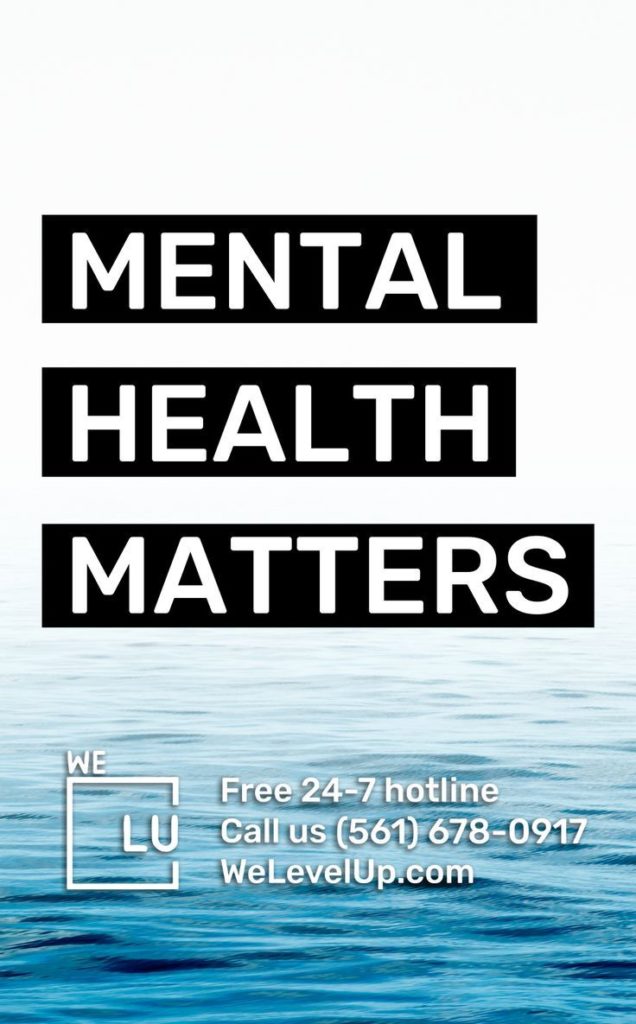
Understanding Behavioral Health Problems
If you experience mental health issues throughout your life, you’re thinking, mood, and behavior could be affected. Many different factors can affect your emotional health, including the following:
- Biological Aspects: Such as brain chemistry and genes.
- Life Events: Such as trauma or abuse.
- Family History: Studies show that psychiatric problems may run in the family.
- Lifestyles: Such as diet, physical activity, and substance use.
Mental stability requires an environment that respects and defends fundamental civil, political, socioeconomic, and cultural rights. It isn’t easy to sustain a high degree of mental health without the freedom and security that these rights bring.
The National behavioral health policies should concern with mental disorders and broader issues promoting mental stability. This promotion should be mainstreamed into governmental and non-governmental policies and programs. In addition to the mental health sector, it is critical to include education, labor, justice, transportation, the environment, housing, and welfare.
Mental Health Care and Treatment
There has been significant progress in understanding what to do about the growing burden of mental diseases in the last decade. Increasing research supports the efficacy and cost-effectiveness of critical therapies for priority mental diseases in nations of varying economic development. Examples of intervention services that are cost-effective, feasible, and affordable include the following:
- Treatment of depression with psychological therapy and, for moderate to severe cases, antidepressant medicines.
- Treatment of psychosis with antipsychotic medication and psycho-social support.
- Alcoholic beverages taxation and restriction of their availability and marketing.
A range of practical measures also exists to prevent suicide, prevent and treat mental disorders, prevention and treatment of dementia, and treatment of substance use disorders.
Importance of Counseling Mental Health
Mental health counseling services are vital to helping one regain mental balance. Mental balance is essential because it can help you to:
- Cope with the stresses of life.
- Be physically healthy.
- Have good relationships.
- Make meaningful contributions to your community.
- Work productively.
- Realize your full potential.
This is also essential because it can affect your physical health. For instance, mental illnesses can raise your risk for physical health conditions such as stroke, type 2 diabetes, and heart disease.
Are you looking for treatment? Finding “mental health counseling near me” is crucial. Fortunately, there are free treatment resources. Contact We Level Up for free assessment and treatment recommendations.
Inpatient Treatment Mental Health Program
Many individuals who struggle with addiction or alcoholism also struggle with co-occurring disorders. Also known as dual diagnosis and comorbid conditions, co-occurring disorders exist simultaneously and often influence one another. Comorbid disorders include addiction paired with depression, anxiety, or bipolar disorder. We offer diverse integrated rehabilitation treatment programs at We Level Up treatment center. Providing critical therapy is needed by clients to enjoy exceptional and comprehensive treatment recovery.
The combinations of treatments applied for each client are customized to their personalized needs. They deliver cutting-edge full-service treatment programs, including residential inpatient, medical detox for alcohol, drug addiction, and co-occurring therapy. Primary treatment includes:
- Obsessive Compulsive Disorder (OCD Treatment).
- Psychosis and Schizophrenia Treatment.
- Self-Harm Treatment.
- Treatment for Mental Health and Addiction, also known as Co-Occurring Disorders Treatment.
Dual Diagnosis In-Patient Mental Health Treatment
Dual diagnosis in mental health, also known as co-occurring disorders, refers to a psychiatric and an addiction in an individual. Inpatient mental health and substance abuse treatment for dual diagnosis involves providing comprehensive care and support to address the individual’s mental disorder and substance use.
Psychiatric medications may be prescribed to manage symptoms such as depression, anxiety, or psychosis. Medication management involves close monitoring of medication effectiveness and potential interactions with substances. It is often combined with therapy for optimal results.
Mental health and addiction treatment centers typically offer educational sessions and skill-building activities to enhance individuals’ understanding of their conditions, triggers, and relapse prevention strategies. Life skills training, stress management, and healthy coping mechanisms are emphasized to support long-term recovery.
In dual-diagnosis inpatient programs, integrated treatment is crucial. It involves a coordinated approach where mental disorder and substance use professionals work together to develop a tailored treatment plan that addresses both disorders simultaneously.
First-class Facilities & Amenities
World-class High-Quality Addiction & Mental Health Rehabilitation Treatment
Rehab Centers TourRenowned Addiction Centers. Serene Private Facilities. Inpatient rehab programs vary.
Addiction Helpline(844) 597-1011Proven recovery success experience, backed by a Team w/ History of:
15+
Years of Unified Experience
100s
5-Star Reviews Across Our Centers
10K
Recovery Success Stories Across Our Network
- Low Patient to Therapist Ratio
- Onsite Medical Detox Center
- Comprehensive Dual-Diagnosis Treatment
- Complimentary Family & Alumni Programs
- Coaching, Recovery & Personal Development Events
Mental Health Treatment Facilities
Various situations, including chemical imbalances, trauma, and substance abuse, cause behavioral health disorders. Yes, it is true. For example, substance addiction can result in psychiatric problems, including anxiety and sadness. Furthermore, many persons with mental illnesses turn to substances or alcohol in an attempt to address their mental balancing requirements incorrectly.
With the integrated We Level Up treatment centers for mental health, our medical staff can help patients with co-occurring or independent psychiatric problems. These programs are intended to assist patients in healing from their difficulties. Residential therapy is critical for psychiatric conditions because patients typically benefit from an utterly immersing treatment center mental health setting.
Furthermore, altering drug doses and therapy is most beneficial for many patients in an inpatient environment. At this level of care, the patient resides at our full-service facilities while undergoing mental health therapy with medical staff with masters in clinical mental health counseling. Residential treatment centers are intended to provide medical care in a more pleasant and less hospital-like setting.
We Level Up has help available around the clock, 24 hours a day. Patients will receive daily therapy in a group setting or individually with their therapist, masters in mental health counseling.
How Does Mental Health Treatment Work?
We offer personalized care at We Level Up’s mental health, drug, and alcohol treatment centers. Residential inpatient, medical detox for alcohol and drug addiction, and co-occurring mental disorder therapy include alumni care, evidence-based medicine, and other services. We personalize each patient’s treatment plan, including complete assistance for mental illnesses, addiction, and dual diagnosis therapy. Our residential mental disorder program specializes in treating thought and affective disorders with mental health counseling masters programs.
Psychiatric disorders are often caused by trauma, loss, grief, stress, and chemical imbalances. Because these issues have various causes, finding a treatment program that offers different treatments is essential. For some patients, therapy to overcome trauma can be beneficial. Leveling medication may be helpful for others whose challenges are more attributed to chemical imbalances. If you’re searching for a “mental health treatment center near me,” We Level Up can help clients find a personalized therapy path to best fit their needs.
World-class, Accredited, 5-Star Reviewed, Effective Addiction & Mental Health Programs. Complete Behavioral Health Inpatient Rehab, Detox plus Co-occuring Disorders Therapy.
CALL(844) 597-1011End the Addiction Pain. End the Emotional Rollercoaster. Get Your Life Back. Start Drug, Alcohol & Dual Diagnosis Mental Health Treatment Now. Get Free No-obligation Guidance by Substance Abuse Specialists Who Understand Addiction & Mental Health Recovery & Know How to Help.
Top 5 Mental Health Programs Near Me FAQs
-
What is crucial to consider when looking for “mental health inpatient treatment near me?”
Several crucial factors should be considered when looking for inpatient treatment near you. Firstly, ensuring that the facility specializes in the specific psychiatric condition you or your loved one is struggling with is vital. Different facilities may have expertise in treating various disorders, so finding one that aligns with your needs is critical. Moreover, consider the treatment approach and therapies offered. Look for evidence-based practices, such as CBT or DBT therapy, as they have proven effective. The qualifications and experience of the treatment team, including psychiatrists, therapists, and nurses, should also be assessed. Finally, consider the facility’s amenities, visiting policies, insurance coverage, and aftercare support to ensure a comprehensive and suitable treatment experience.
-
Is it more practical to get online mental health therapy vs. going to the mental health treatment centers near me?
The choice between online therapy and in-person treatment centers depends on various factors and individual preferences. Online therapy provides greater accessibility, especially for individuals who live in remote locations, have limited mobility, or face transportation challenges. Inpatient or residential treatment centers offer intensive, 24/7 care, which can be crucial for individuals with severe psychiatric conditions or those in crisis. Being in a treatment center removes individuals from their familiar environment, minimizing distractions and providing a structured setting focused solely on their needs.
-
What are mental health certificate programs?
Mental health certificate programs are educational programs that provide focused training and knowledge in various aspects of mental health. These programs are typically shorter than degree programs and are designed to equip individuals with specific skills and expertise in psychiatric health. Certificate programs can cover various topics, such as counseling techniques, assessment, crisis intervention, substance abuse counseling, or specific therapeutic modalities. These programs are often pursued by individuals seeking to enhance their professional skills or expand their career opportunities. Universities, colleges, or professional organizations can offer mental health certificate programs, and can be completed online or through in-person classes, depending on the program and institution.
-
What are the clinical mental health counseling graduate programs?
When searching for treatment, looking for qualified professionals with expertise in certain conditions and therapies is best. Clinical counseling graduate programs are specialized academic programs at the graduate level that prepare individuals to become licensed counselors. These programs typically lead to a Master’s or Doctoral degree in mental health therapy, counseling, or a related field. Clinical counseling programs focus on developing the knowledge, skills, and competencies needed to provide counseling services to individuals, couples, families, and groups. The curriculum often covers counseling theories, ethics, assessment and diagnosis, therapeutic techniques, multicultural counseling, and psychopathology.
-
How to find a therapy near me mental health?
Finding a therapist is a personal and unique process, and finding the best fit may take some time. Trust your instincts and prioritize finding a therapist with whom you feel comfortable, understood, and supported. If you have health insurance, contact your insurance provider to inquire about treatment coverage and obtain a list of therapists or counseling centers that accept your insurance.
How to Improve Mental Health? 8 Steps & Tips for Maintaining Your Mental Wellbeing
Taking care of your health is crucial for a balanced and fulfilling life. It involves prioritizing self-care, such as engaging in activities that bring relaxation and joy, getting enough sleep, and practicing mindfulness. It also means seeking support when needed, whether from friends, family, or mental health professionals.
Taking care of your psychiatric health involves:
- Being aware of your emotions and needs.
- Setting boundaries.
- Engaging in healthy coping mechanisms.
By prioritizing your health, you can enhance your well-being, resilience, and overall quality of life.
Get FREE mental health treatment insurance check – https://welevelup.com/rehab-insurance/
If you or a loved one is struggling with psychiatric problems or other substance use disorder(s), call for a FREE consultation 24/7 at (561) 678-0917
Experience Transformative Recovery at We Level Up Treatment Centers.
See our authentic success stories. Get inspired. Get the help you deserve.
Start a New Life
Begin with a free call to an addiction & behavioral health treatment advisor. Learn more about our dual-diagnosis programs. The We Level Up Treatment Center Network delivers recovery programs that vary by each treatment facility. Call to learn more.
- Personalized Care
- Caring Accountable Staff
- World-class Amenities
- Licensed & Accredited
- Renowned w/ 100s 5-Star Reviews
We’ll Call You
Search We Level Up Detox, Mental Health Topics & Resources
Sources
[1] About Mental Health – Centers for Disease Control and Prevention (CDC)
[2] Mental health: strengthening our response – Centers for Disease Control and Prevention (CDC)
[3] Psychiatric Illness – National Institute of Mental Health (NIMH)
[4] Galderisi S, Heinz A, Kastrup M, Beezhold J, Sartorius N. Toward a new definition of mental health. World Psychiatry. 2015 Jun;14(2):231-3. DOI: 10.1002/wps.20231. PMID: 26043341; PMCID: PMC4471980.
[5] Manwell LA, Barbic SP, Roberts K, Durisko Z, Lee C, Ware E, McKenzie K. What is mental health? Evidence towards a new definition from a mixed methods multidisciplinary, international survey. BMJ Open. 2015 Jun 2;5(6):e007079. DOI: 10.1136/bmjopen-2014-007079. PMID: 26038353; PMCID: PMC4458606.
[6] National Collaborating Centre for Mental Health (UK). Common Mental Health Disorders: Identification and Pathways to Care. Leicester (UK): British Psychological Society (UK); 2011. (NICE Clinical Guidelines, No. 123.) 2, COMMON PSYCHIATRIC DISORDERS. Available from: https://www.ncbi.nlm.nih.gov/books/NBK92254/
[7] Krystal JH, State MW. Psychiatric disorders: diagnosis to therapy. Cell. 2014 Mar 27;157(1):201-14. DOI: 10.1016/j.cell.2014.02.042. PMID: 24679536; PMCID: PMC4104191.
[8] National Institutes of Health (US); Biological Sciences Curriculum Study. NIH Curriculum Supplement Series [Internet]. Bethesda (MD): National Institutes of Health (US); 2007. Information about Mental Illness and the Brain. Available from: https://www.ncbi.nlm.nih.gov/books/NBK20369/
[9] Malla A, Joober R, Garcia A. “Mental illness is like any other medical illness”: a critical examination of the statement and its impact on patient care and society. J Psychiatry Neurosci. 2015 May;40(3):147-50. DOI: 10.1503/jpn.150099. PMID: 25903034; PMCID: PMC4409431.
[10] About Psychiatric Health – Centers for Disease Control and Prevention (CDC)
